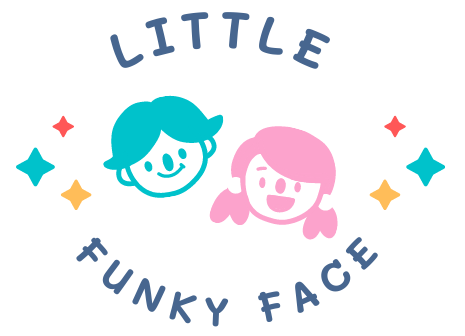Beauty standards have evolved globally, but South Korea’s transformation is particularly fascinating. This article dives deep into the shifts in South Korean beauty (韓国 美容) ideals, examining how economic, cultural, and technological changes have played pivotal roles. We’ll explore historical contexts, current trends, and the influence of media and technology on these evolving standards.
Historical Context of South Korean Beauty Standards
Over the past century, South Korea has experienced rapid modernization, which has significantly impacted beauty ideals. Traditionally, during the Joseon Dynasty, pale skin was revered as a symbol of purity and high social status. This preference for fair skin persisted well into the 20th century.
In the 1960s and 1970s, as South Korea began to industrialize, beauty standards started to shift. The influence of Western culture led to a growing appreciation for more diverse and modern beauty ideals. Fair skin remained a staple, but other attributes, such as taller stature and slimmer physiques, began to gain popularity.
The Impact of the Korean Wave (Hallyu)
The late 1990s and early 2000s saw the rise of the Korean Wave or Hallyu, which refers to the global popularity of South Korean culture, including music, television dramas, and cinema. This cultural movement has had a profound impact on beauty standards, not only within South Korea but also globally.
Celebrities and K-pop idols became trendsetters, and their appearance set the benchmark for beauty. The emphasis on flawless skin, double eyelids, and V-shaped faces became prevalent. These standards were heavily promoted through various media channels, leading to a surge in cosmetic surgeries and skincare routines designed to achieve these looks.
The Role of Technology and Social Media
In today’s digital age, technology and social media play a significant role in shaping beauty standards. Platforms like Instagram, YouTube, and TikTok have become arenas where beauty influencers and makeup artists showcase the latest trends and products.
Augmented reality (AR) beauty apps and filters allow individuals to experiment with different looks virtually. This accessibility has democratized beauty, enabling people from all walks of life to engage with and adopt these evolving standards.
Skincare and Its Cultural Significance
Skincare is an integral part of South Korean beauty culture. The meticulous multi-step skincare routines are designed to achieve radiant and youthful skin. This emphasis on skincare reflects broader cultural values, such as discipline, self-care, and the pursuit of perfection.
Brands continuously innovate, introducing products featuring unique ingredients like snail mucin, green tea, and ginseng. These products are not just about aesthetics; they also embody the cultural appreciation for holistic well-being.
The Influence of Globalization
Globalization has brought South Korean beauty standards into the international spotlight. Korean beauty products, commonly referred to as K-beauty, have gained immense popularity worldwide. This global interest has led to an exchange of beauty practices and ideals.
Western beauty brands now incorporate Korean skincare principles, and vice versa. This cross-cultural exchange has resulted in more inclusive and diverse beauty standards, allowing individuals to choose what resonates best with them.
The Rise of Natural Beauty
While cosmetic enhancements and elaborate makeup routines remain popular, there is a growing trend towards natural beauty. This shift is driven by a desire for authenticity and simplicity. The “no-makeup” makeup look, which emphasizes minimalism and highlights natural features, is gaining traction.
This trend reflects a broader societal shift towards self-acceptance and mental well-being. It encourages individuals to celebrate their unique features rather than conforming to a single standard of beauty.
Gender and Beauty Standards
Beauty standards in South Korea are not limited to women; men are also subject to societal expectations. The concept of “flower boys,” characterized by delicate and youthful features, has become prominent. Male grooming and skincare have become mainstream, with many men adopting beauty routines similar to those of women.
This inclusivity challenges traditional gender norms and promotes a more holistic understanding of beauty. It underscores the idea that self-care and appearance are important for everyone, regardless of gender.
The Impact of Beauty Standards on Mental Health
The pressure to conform to beauty standards can have significant mental health implications. In South Korea, the pursuit of perfection can lead to stress, anxiety, and low self-esteem. The competitive nature of beauty standards is exacerbated by societal expectations and media portrayal.
It is essential to address these issues and promote a healthy balance between aesthetic aspirations and self-acceptance. Initiatives that encourage body positivity and mental well-being are crucial in this regard.
The Future of Beauty Standards in South Korea
As South Korea continues to evolve, so too will its beauty standards. The future likely holds a more inclusive and diverse understanding of beauty, influenced by both cultural heritage and global trends. Technological advancements and changing societal values will shape these standards in new and exciting ways.
Conclusion
South Korea’s beauty standards have undergone significant transformations, influenced by historical contexts, globalization, and technological advancements. While these standards offer a rich tapestry of cultural and aesthetic values, it is essential to approach them with a balanced perspective that prioritizes mental well-being and self-acceptance.
For those looking to explore and refine their beauty routines, understanding these evolving standards can provide valuable insights. Stay engaged, stay informed, and most importantly, stay true to yourself.
By analyzing the evolution of beauty standards in South Korea, we gain a deeper appreciation for the cultural and societal factors that shape our perceptions of beauty. This understanding can empower individuals to make informed choices about their appearance and well-being.
